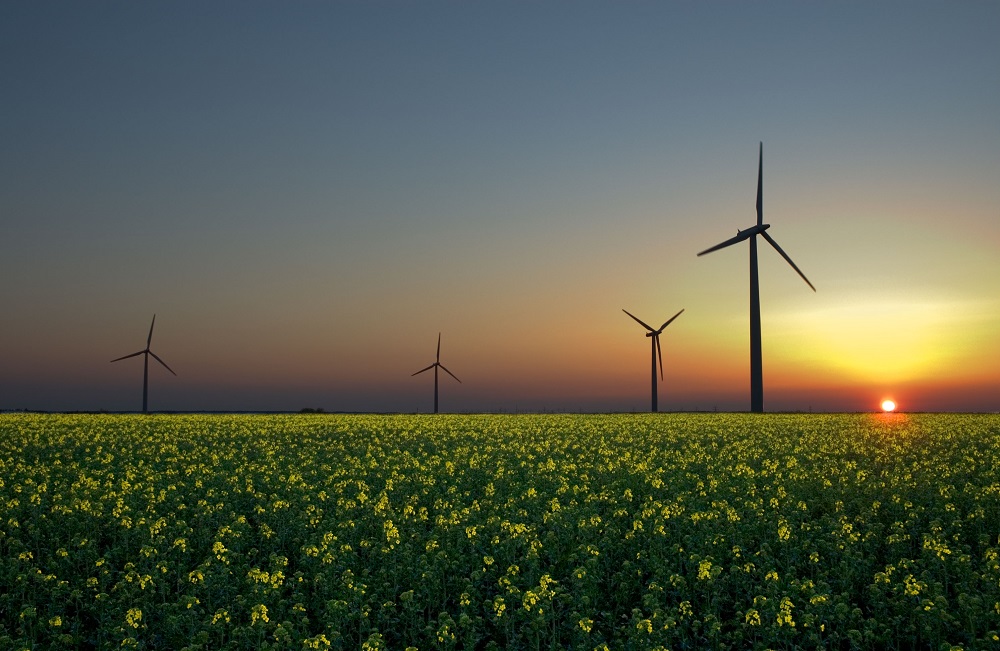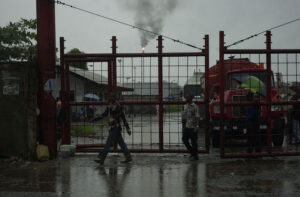(This essay was written on February 28, 2010)
In explaining death to an untrained dog, its owner can not just stand and rail in the Queen’s English the implications of crossing a highway. No matter how much emotion the owner puts into his or her words, the dog will not understand.
Looking at the energy situations we face in Nigeria today, I believe it is time we start talking to ourselves not just in statistics, but in understandable statistics. And along with that famous line “be the change you want to see in the world”, I offer this essay as a token.
With an estimated 35 billion barrels of crude oil reserve, a daily output capability of 2.5 million barrels per day, and domestic utilization of 450,000 barrels per day[1], it seems we are well off. But this is not the case at all. Almost all the crude oil[2] is exported, most of it as a means of foreign exchange[3] while the rest goes to foreign refineries to be refined and then imported back into the country. It is like a doctor who exports all his medical knowledge to foreign hospitals in exchange for a salary. Why not use his knowledge to make even more money through a medical practice?
At an output of 2.5 million barrels of crude oil per day and a reserve of 35 billion barrels, it will take 14000 days for our crude oil reserve to disappear. A normal year extends 365 days. 14000 days will therefore amount to about 38 years. If the counting takes effect from 2007, the year the above data was released, then we should be saying bye-bye to our passionately exploited liquid gold by 2045!
What do we then do? Only one option is available, a sustainable alternative energy solution planned and executed far ahead of the projected date of oil disappearance. But there is more to this than just the joggling of words. More than 70% of the money on which our country survives comes from this diminishing crude oil. Finding a sustainable alternative to it also entails finding a sustainable alternative to our economy. Oil is not just an energy source that fuels our cars, it essentially fuels our treasury.
So how do we define sustainable alternative energy in the above context? A sustainable alternative energy source can be defined as an energy source that does not include crude oil, has a minimal adverse effect on the environment, is not depleted at a significant rate, will be available for future generations to also meet their own energy needs and is developed enough to drive a post-oil economy.
Crude oil, the number one energy source in Nigeria, is abundant in the south-south. The proceeds, after being refined, provide energy for all Nigerians. There is a coal mine in Enugu, whose proceeds also go into providing energy for all Nigerians, though under-utilized. But a look at the solar and wind energy projects of the Energy Commission of Nigeria reveals a concentration of the projects in the north. The questions then arise, is the north more conducive for solar and wind energy projects? If yes, what steps need to be taken to exploit these renewable energy sources as a viable alternative to crude oil?
That the government is undergoing some projects in this region does not mean the above questions have been answered. When we look at the issue of militancy in the Niger-delta[4], it may seem the government supports the destruction of one environment for the survival of another, but this is not so. The government has only failed in exploiting the energy potential of the other territory. These are only my observations and every convincing argument to the contrary is welcomed.
In present Nigeria, I believe no region has to suffer for another. if the government exploits the energy alternatives in the north enough to drive a thriving economy in the region, the region will not have to depend on oil energy or oil money to survive. Also, the youths of the Niger-delta will not have to embrace militancy or endure the degradation of their environment in the first place.
Nigeria’s problem is the problem of energy. And the main source of this energy, oil, is fast disappearing. The Nigeria Energy Policy[5] is one intervention that has to be redefined to reveal a national post-crude oil mindset.
Energy sources in Nigeria can be divided into two major categories.
- Fossil fuels[6] e.g. crude oil, natural gas, and tar sands[7].
- Renewable energy sources e.g. hydropower, solar, fuel-wood, biomass, wind, hydrogen, ethanol, etc.
Alternative energy sources in Nigeria cuts across the two categories above. We have natural gas, tar sands, hydropower, solar, wind, etc. But in defining sustainable alternative energy sources, a line is significantly drawn. At any consumption rate, fossil fuels are not sustainable. They are gradually depleted until nothing remains. Renewable energy sources on the other hand are sustainable. Defining sustainability might be a bit tricky because some of these renewable energy sources might look prone to depletion, but the following paragraph should go a long way to clear the air.
As long as the sun continues to shine, our rivers continue to flow, we continue to protect our forests and plant new trees and the wind continues to blow, we will always have sustainable alternative energies to choose from.
The national energy policy was reviewed in 2003 to reflect the challenges, direction, and goals of energy policies in the country. The objectives are outlined below.
i. To ensure the development of the nation’s energy resources, with diversified energy resources option, for the achievement of national energy security and an efficient energy delivery system with an optimal energy resource mix.
ii. To guarantee increased contribution of energy productive activities to national income.
iii. To guarantee an adequate, reliable, and sustainable supply of energy at appropriate costs and in an environmentally friendly manner, to the various sectors of the economy, for national development.
iv. To guarantee an efficient and cost-effective consumption pattern of energy resources.
v. To accelerate the process of acquisition and diffusion of technology and managerial expertise in the energy sector and indigenous participation in energy sector industries, for stability and self-reliance.
vi. To promote increased investments and development of the energy sector industries with substantial private sector participation.
vii. To ensure comprehensive, integrated, and well-informed energy sector plans and programs for effective development.
viii. To foster international co-operation in energy trade and project development
in both the African region and the world at large.
ix. To successfully use the nation’s abundant energy resources to promote international co-operation.
The ideas and solutions that will be outlined in subsequent sections of this essay will reflect mindfulness of the above objectives.
Let us look at it from this angle. Let us imagine these challenges are the extra limbs of a newborn which surgeons have set out to remove. It will take highly efficient planning to carry out an operation of such a magnitude. It will require the acquisition of necessary medical technology and expertise for the operation to be successful. And it will also take an excellent monitoring program to monitor the post-operation wellness of the patient.
Outlined below are the sustainable alternative energy sources nay renewable energy and how to meet the challenges they pose
- Biomass.- Electricity can be generated from industrial and agricultural wastes. Ethanol[8] is an alternative to petrol as fuel for cars. There is already a department in the NNPC[9] taking care of this. Also, the National Research Institute for Chemical Technology is making headway towards making ethanol a viable fuel alternative[10]. But the successes have been minimal due to a lack of political will, relevant technology, and expertise. There is also a breakthrough in the use of cassava fuel. The chief executive officer of Cassava Agro Industries Services Ltd (CAISL) Boma Simeon Anga announced at a press briefing in Abuja on November 18 2009 that the company signed a N56 billion contract with the Nigeria Cassava Growers Association for the supply of 8 million tons of cassava tubers to the national cassakero cooking fuel program[11]. Fuel-wood is also included here. The challenges facing this area are the challenges of agriculture. For fuel-wood, ethanol, and cassava to be viable as an alternative source of energy, an aggressive agricultural policy needs to be pursued. Industries also have to be monitored to prevent illegal and probably more convenient disposal of their wastes. The finest technologies available must be employed. For example, combined heat and power plants are said to have higher efficiency in the production of bioelectricity than ordinary bioelectricity plants.
- Solar.- Solar energy is harnessed for the generation of electricity through solar thermal processes and solar photovoltaic systems. Solar cells and chargers for common electronics like torchlight, transistor radios, and phones are now more widely in use. The complaints about these solar energy sources are those of quality. The government should not only promote the use of solar technology in the country, but it should also lay a great emphasis on quality. Familiarity with solar energy sources should be promoted in the universities. It is common knowledge that the most common place to start a fad is among students. And this is also the easiest place to learn the use of new technologies. Rather than buy generators for universities, the federal and state governments should as a matter of urgency resort to solar energy sources.
- Hydropower- Other than the common hydroelectric power plants, the following water sources of renewable energy are also available.
- Ocean waves[12] [13],
- Tidal energy[14], and
- Ocean thermal gradients[15].
The problems militating against better exploitation of hydropower energy in Nigeria stem from obsolete technology and expertise and the non-compensation of displaced inhabitants of such territories. Politicians are sometimes reluctant to pursue the necessary relocation of people due to fear of electoral defeats. Even when compensation is paid, corruption sometimes prevents the money from getting to the right people. The people will therefore do everything in their power to prevent the occupation of their lands. Lack of the necessary expertise sometimes results in an inadequate survey of hydropower energy sites leading to disasters like earth movements and recurrent damage to the power plants. To promote hydropower as a sustainable alternative to an oil economy, the above concerns have to be positively affected.
- Wind- This writer is aware of only one installed aerogenerator[16] in the country, located in one village in Sokoto state. Wind energy will contribute a great deal to a pro-renewable energy economy. Presently, it is underutilized.
- Other viable sources- Hydrogen, algae, etc are areas of ongoing research.
The ultimate solution to the above challenges is a comprehensive overall of the educational system and a strong political will to pursue the realization of a post-oil economy even before oil finally disappears.
If a particular region is more favorable to particular renewable energy, then the project should be pursued in the region without fear of political undertones. The ultimate sustainable alternative energy source is man himself.
In removing the unwanted limbs of a newborn, the surgeon has to be competent and plan very well or the motives for the operation will be defeated, resulting in death. Inadequate planning is the bane of policy implementation in Nigeria. It has become commonplace for a bright policy to become pale on implementation due to lack of adequate planning.
But yes we can. Ultimately, we as a nation can achieve a sustainable alternative energy base if we listen to our leaders before we elect them and also rise to defend our votes. Leaders who rise to power based on their knowledge in election rigging will leave us unprepared when oil finally becomes a fairy tale.
God bless Nigeria.
BIBLIOGRAPHY
- National Energy Policy.
- Keynote addresses by the Director-General of the Energy Commission of Nigeria (ECN). Dated 12th December 2006 and 2nd April 2009.
- Wikipedia, as appropriately quoted in the footnotes.
- Google images- picture credits.
- Other sources- Appropriately referenced in the footnotes.
[1] Data from the Energy Commission of Nigeria.
[2] crude oil is also known as petroleum.
[3] Money earned by a country from her exports.
[4] Group name for the oil producing regions of the country.
[5] First drafted in 1993. Subsequent review until 2003.
[6] Results from decomposition of dead matter over many years.
[7] Bitumen.
[8] Made from starchy or sugary plants.
[9] Nigeria National Petroleum Commission.
[10] News from www.africanews.com
[11] According to http://allafrica.com/stories/200911190282.html.
[12] Waves are caused by the wind blowing over the surface of the ocean. Ocean wave energy is captured directly from surface waves or from pressure fluctuations below the surface.
[13] Source- http://ocsenergy.anl.gov/guide/wave/index.cfm
[14] According to http://en.wikipedia.org/wiki/Tidal_power, Tidal power, sometimes also called tidal energy, is a form of hydropower that converts the energy of tides into electricity or other useful forms of power.
[15] Ocean thermal energy conversion uses the temperature difference that exists between deep and shallow waters to run a heat engine.
[16] For generating wind energy.


